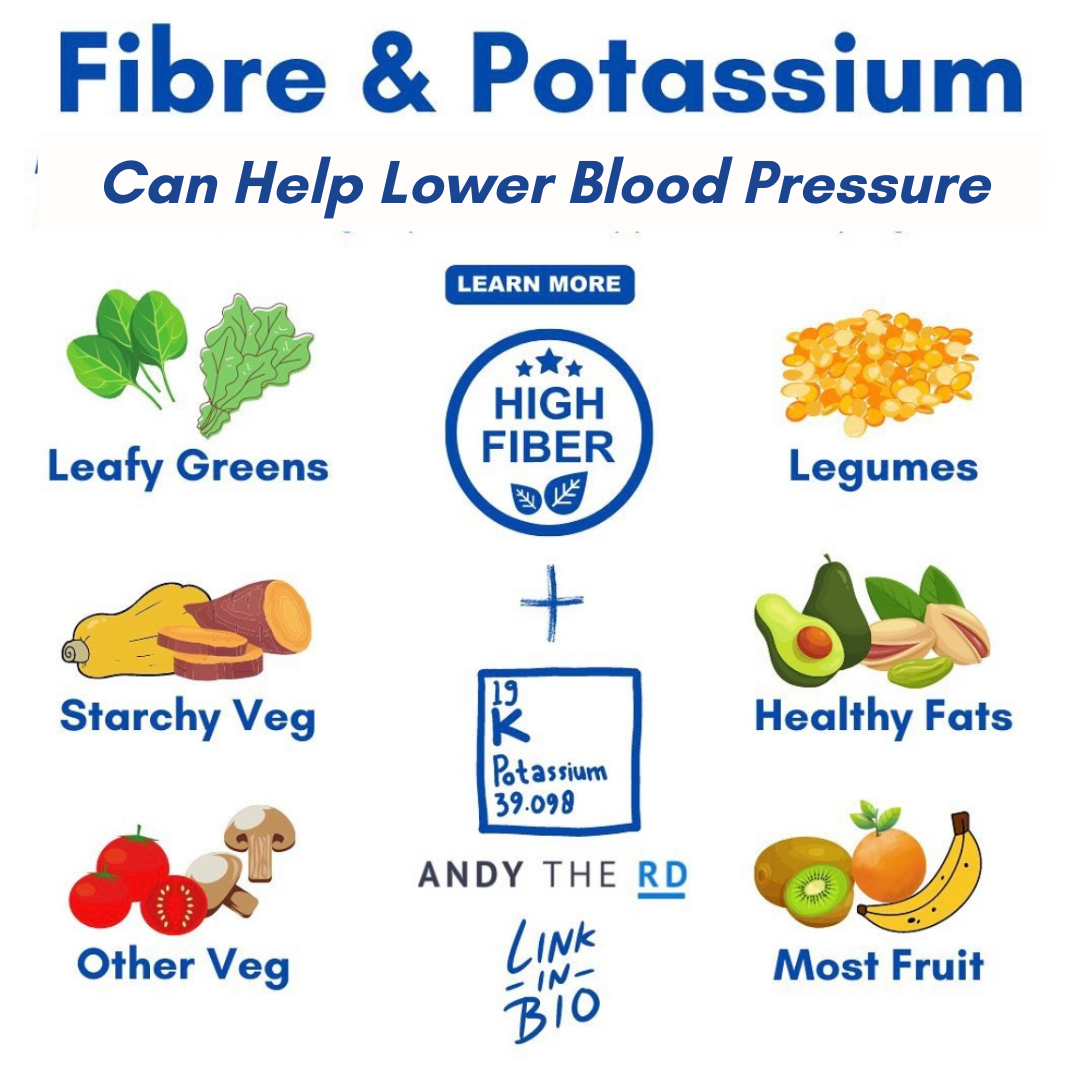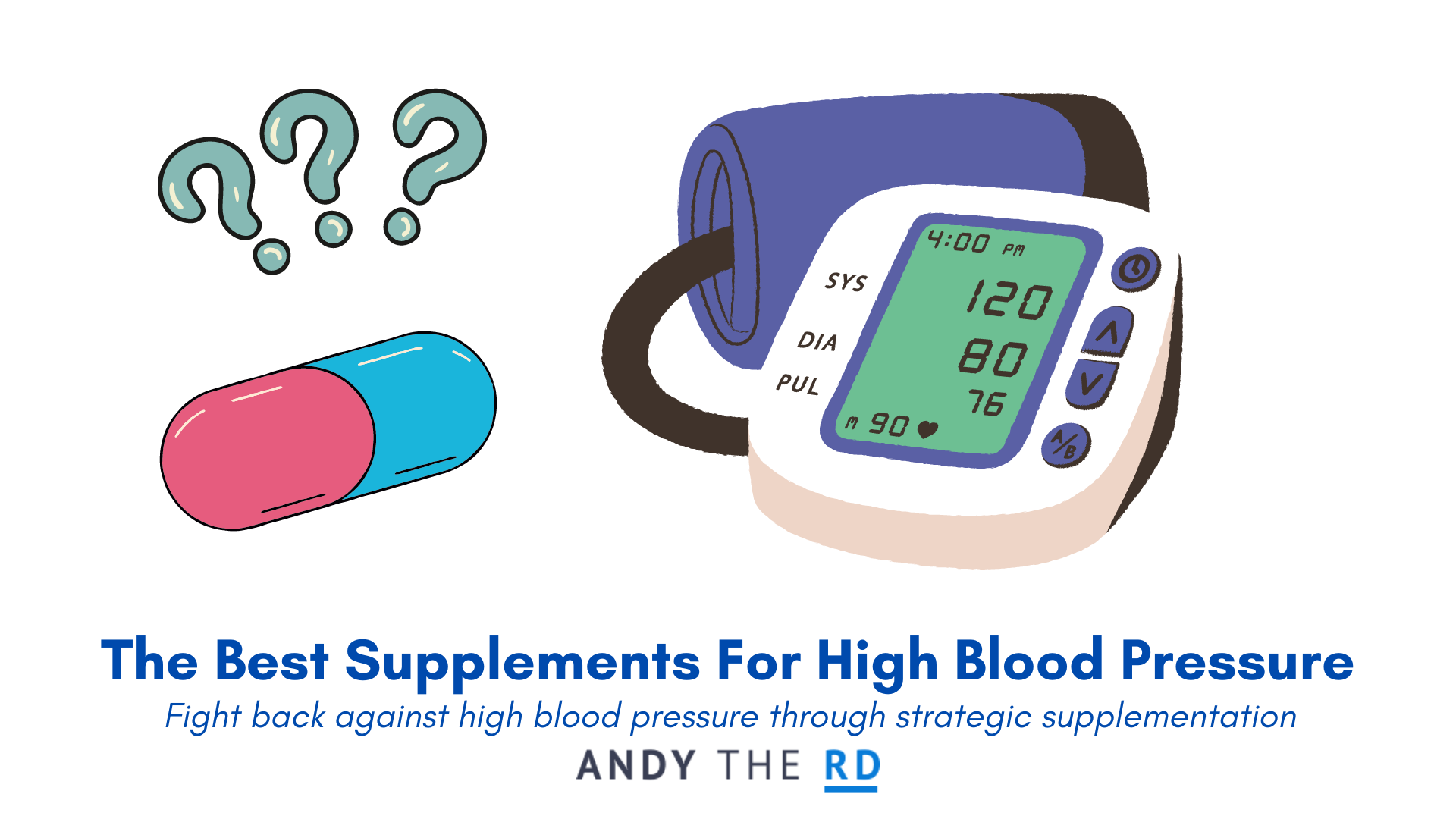Table of Contents
High blood pressure affects about 1 in 4 Canadians, with an even higher prevalence in the United States.
From the dietary perspective there are two overarching areas to consider when trying to reduce your blood pressure.
- Increase Your Potassium, Magnesium, Calcium & Fibre intake
- Reduce Your Sodium Intake
If you are looking for personalized nutrition advice to accomplish the above, don’t hesitate to reach out about to learn how I can help.
The goal of today’s article is to offer forward a brief overview of the potential blood pressure lowering effects of commonly available supplements.
To ensure safe use of any supplement, it is strongly advisable to first consult with your healthcare provider.
Omega 3s
A recently published meta-analysis out of the Journal Of The American Heart Association found that Omega-3 supplements containing 2-3 grams of DHA/EPA per day could lower both systolic (~ 2.6 points) and diastolic blood pressure ( ~1.7 points) over a multi-month period.
These types of omega-3 fatty acids are also found in rich supply in salmon, sardines, mackerel, trout and herring.
Magnesium
A 2017 meta-analysis out of the American Journal Of Clinical Nutrition determined that magnesium supplementation in the 350-450 mg per day range, over a multi-month period, could reduce systolic blood pressure (~4 points) and diastolic blood pressure ( ~2.25 points) over a multi-month period.
Most people don’t eat enough magnesium, learn more about magnesium-rich foods here.
Calcium
A meta-analysis published in the Journal Of Human Hypertension found that calcium supplementation around ~1200mg daily over a multi-month period reduced systolic blood pressure ( ~1.86 points) and diastolic blood pressure ( ~.99 points) over a multi-month period.
The blood pressure lowering effects of calcium supplementation was about ~50% higher in those with low dietary calcium intake.
Potassium & Fibre
Potassium and fibre are fundamental to good health and blood pressure lowering, they are found grouped together in large amounts in six families of foods.

Want more examples? Click through the image above!
Final Thoughts – Food First
Each of the nutrients discussed in today’s post have blood pressure lowering potential in both supplemental and dietary form.
You don’t need to take supplements to lower your blood pressure, you can do so using good nutrition.
If you are looking to leverage the power of food to increase the quantity of these nutrients in your diet, lower your blood pressure and improve your health – I can help.
Reach out today to learn more about working with me in a one-on-one capacity.
Andy De Santis RD MPH





More Stories
United Healthcare’s ransomware attack shows why supply chains are under siege
Nutrition Tips For Ramadan | JM Nutrition
Probiotics for IBS | The Nutritionist Reviews